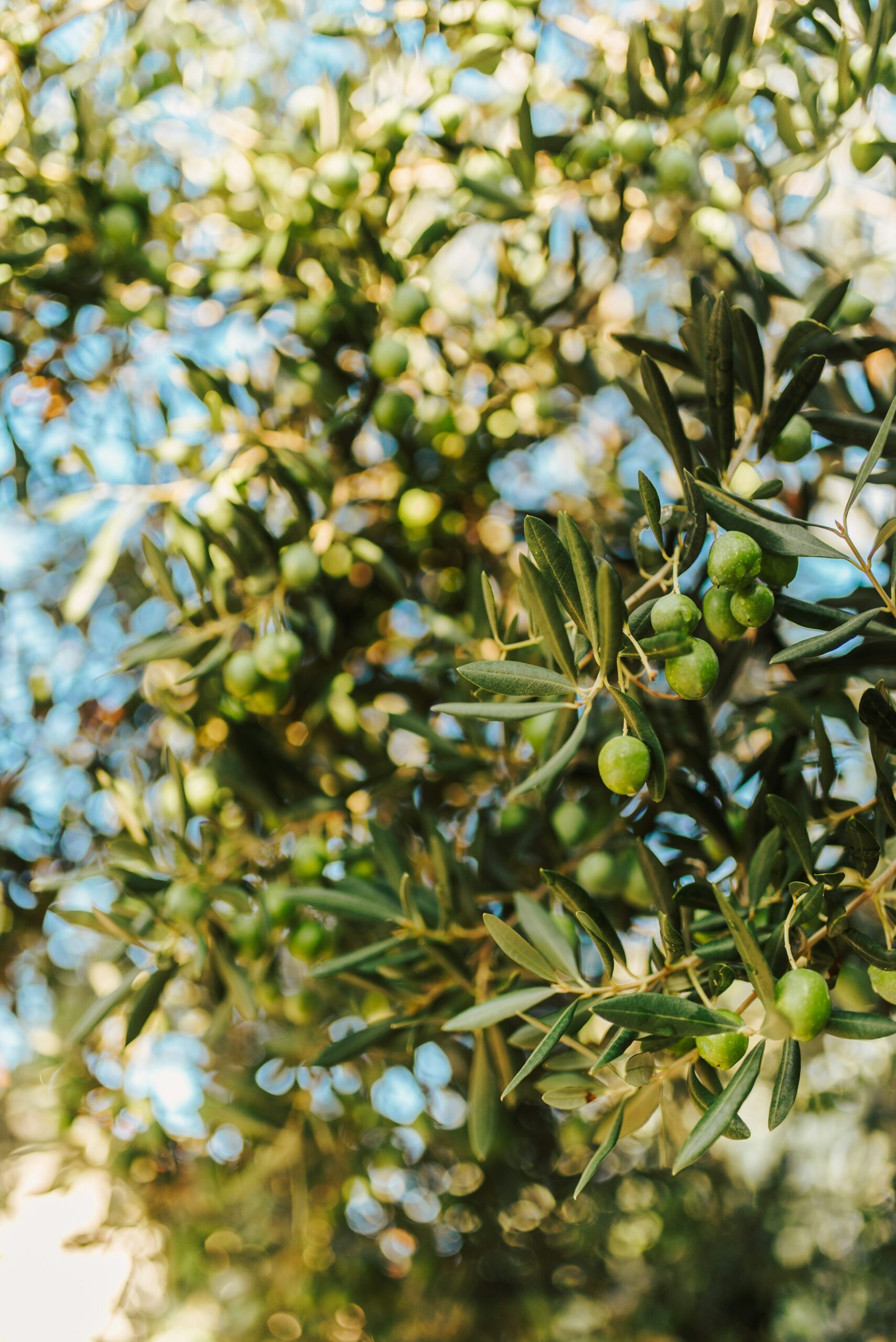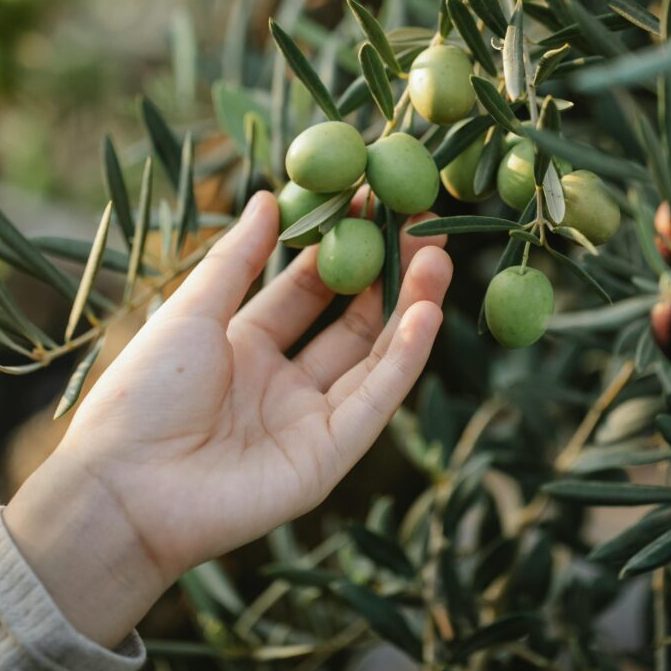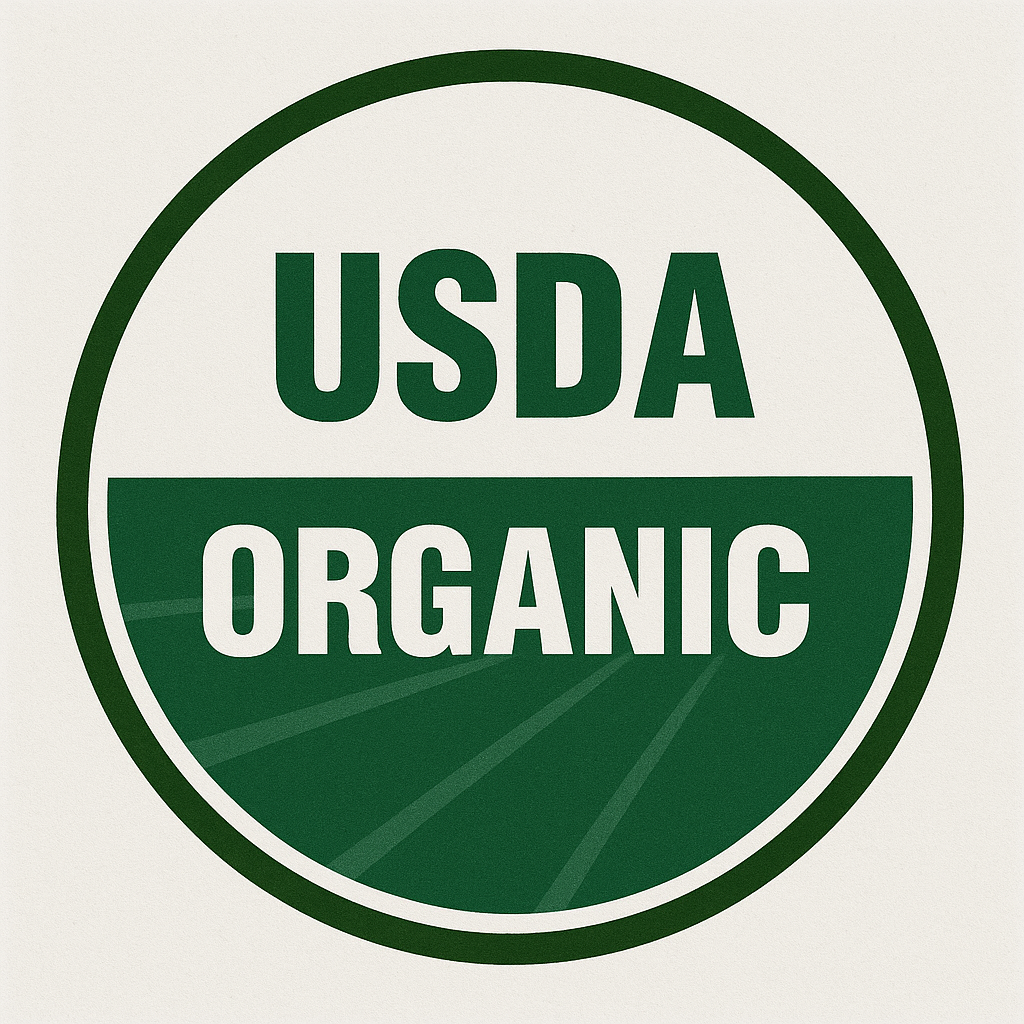
Shayna’s Kitchen Is USDA Certified Organic: Why Choosing Organic Supports Health & Sustainability
At Shayna’s Kitchen, we believe that real, unprocessed, nutrient dense food has the power to heal and nourish us and help us be our best selves.
As a trained chef and holistic nutritionist from California who has now spent years living in the Italian countryside, I know that the secret to crafting the healthiest, most delicious meals is in using nature’s best ingredients in their purest form.
I have been obsessed with organic and regenerative, biodynamic farming throughout my culinary adventures, which is why I am thrilled to announce that Shayna’s Kitchen is certified organic in the United States!
What Is Organic Farming?
The United States Department of Agriculture (USDA) describes organic farming as a set of practices that promote ecological balance and biodiversity by cycling on-farm resources and enhancing soil and water quality. Organic agriculture avoids the use of synthetic pesticides, herbicides, and fertilizers, as well as sewage sludge, irradiation, and genetic engineering.
What The USDA Certification Means
USDA Certified Organic foods are grown and processed according to federal guidelines, with natural substances and physical, mechanical, or biologically based methods. Here are just some of the requirements of the USDA Organic Certification:
- No genetically modified organisms (GMOs) from farm to table
- No synthetic pesticides, herbicides, or fertilizers
- No antibiotics, growth hormones, or non-organic feed to raise animals
- Farming practices must promote soil quality and conserve water
- Comprehensive annual inspections for every component of the operation, including, but not limited to, seed sources, soil conditions, crop health, weed and pest management, water systems, inputs, contamination and commingling risks and prevention, and record-keeping.
Organic vs Natural vs Non-GMO
As demand rises for healthier food, producers are responding with more options and an array of different labels. It’s important for consumers to understand what these terms actually mean to eat and enjoy food with confidence.
A question that often arises is if food labeled “natural” or “non-GMO” is organic.
The answer is no. An ingredient may be “natural” or “non-GMO,” but that doesn’t necessarily make it organic. For example, a bottle of oil might be labeled “natural” to highlight its plant-based ingredients, but that doesn’t guarantee the plants weren’t genetically modified. Furthermore, even if the plants were non-GMO, it doesn’t necessarily mean that they weren’t treated with synthetic pesticides or fertilizers.
USDA Organic labeling is highly regulated. Put simply, all USDA Certified Organic products are non-GMO and produced without synthetic chemicals, but not all natural or non-GMO products are USDA Certified Organic.
Benefits Of Buying & Eating Organic Food For Our Health & Ecosystems
Choosing organic means investing in your health and doing the best for your well-being—a choice that’s strongly supported by science. A study comparing organic and conventional Mediterranean olive groves highlights organic olive farming as an optimal, sustainable solution that delivers ecological, social, and economic benefits. Several studies report that extra virgin olive oil from organic groves contains higher levels of polyphenols than conventional groves. These anti-inflammatory and antioxidant compounds are linked to improvements in gut health, cholesterol levels, blood sugar regulation, and weight management, as well as a reduced risk of chronic diseases such as cancer, Alzheimer’s, and heart disease.
Cold-pressed from the olives of centuries-old trees on my biodynamic farm in Umbria—the green heart of Italy—Shayna’s Kitchen Extra Virgin Ancient Olive Oil is certified organic in both the USA and EU.
Shade grown and stone ground on a single farm in Uji, Kyoto, Japan, Shayna’s Kitchen Ceremonial Elevated Morning Ritual Matcha is certified organic in both the USA and Japan.
We are proudly committed to being organic for a number of reasons.
Protecting Our Health From Potentially Toxic & Carcinogenic Chemicals
Experts say that certain food additives that are banned outside of the US are “almost certainly” making Americans sick.
California became the first state in the nation to pass legislation that will ban the use of several synthetic chemicals in food in 2027. One of these, potassium bromate, is a common flour additive that has already been banned in the United Kingdom, Canada, Brazil and the European Union—but the potentially carcinogenic chemical can still be found in the USA in some non-organic grain products, breads, and other baked goods.
Reducing Pesticide & Herbicide Exposure For Safer Farm Environments & Cleaner Ecosystems
Chemical pesticides are linked to central nervous system symptoms and dermatological, gastrointestinal, neurological, respiratory, reproductive, and endocrine effects.
Glyphosate is the most widely used agricultural pesticide in the world, heavily applied to crops like wheat, oats, corn, and soy, with residuals found in cereal, pasta, and some fruits and vegetables. Researchers have found significantly higher levels of glyphosate during spray season in the urine of pregnant women living near agricultural fields, raising concerns about the unseen reach of pesticide use. The effects of synthetic pesticide exposure may extend far beyond farms, impacting local communities and ecosystems in ways we don’t yet fully understand. Reducing the risks of this exposure through organic and biodynamic farming practices can help protect both human health and the environment.
Respecting Nature’s Seasons And Protecting Our Ecosystems
Most conventional farms rely on synthetic fertilizers and pesticides to grow monocultures and plants outside their natural growing rhythms. These chemicals can leach into waterways, harming wildlife, aquatic life, and organisms that were not intended to be targeted. This runoff can contaminate water sources, degrade soil health, and disturb the natural balance and harmony of local ecosystems.
Organic farming aligns with the Italian tradition of eating seasonally and the principles of biodynamics, embracing genuine nourishment and connection while rejecting chemically-driven growth methods that prioritize convenience.
Enhancing Soil Fertility And Biodiversity To Support & Strengthen Gut Health
Conventional chemical agriculture has led to the depletion of soil fertility and biodiversity, which has disrupted soil microbiology and ultimately affected the quality of our food.
Organic farming offers a return to nature that supports human health. Studies suggest that organic farm soils contain higher concentrations of beneficial microorganisms, which contribute to the growth of nutrient dense foods that nourish, balance, and support a healthier and more resilient gut microbiome for optimal digestion, immunity, mental health, and hormonal balance.
Questions About Organic Living?
Ask me @shaynateresetaylor on Instagram, TikTok, & YouTube
Shop organic ingredients and elevated essentials: https://shop.shaynaskitchen.com/collections/shop
Join our next spiritual wellness retreat: https://shaynaskitchen.com/wellness-retreats/
Learn and grow with Shayna’s courses: https://shaynaskitchen.com/masterclasses/




